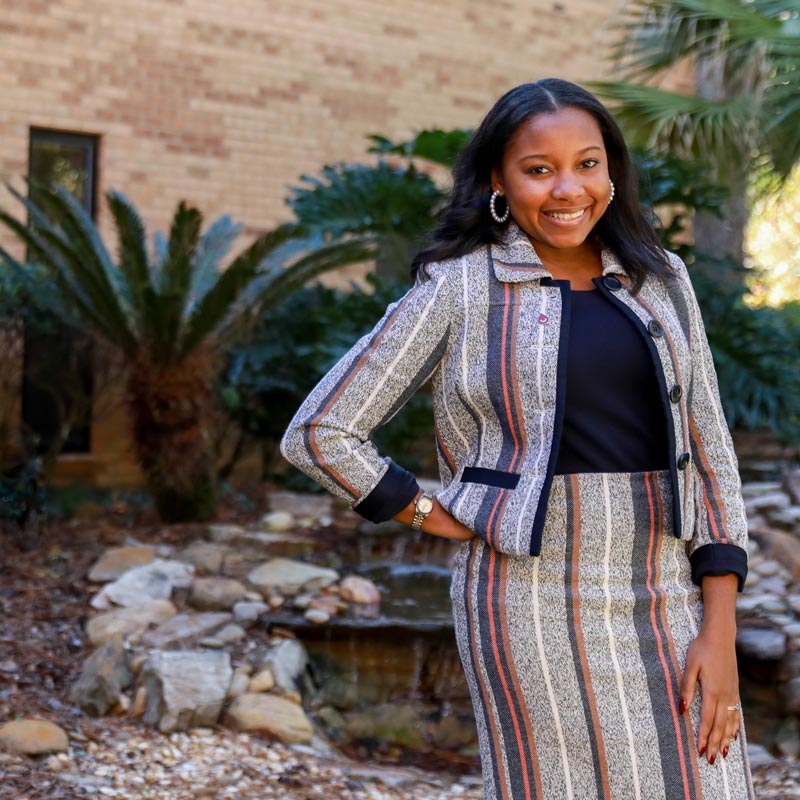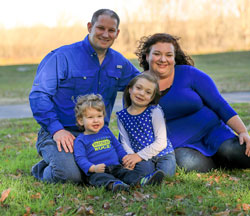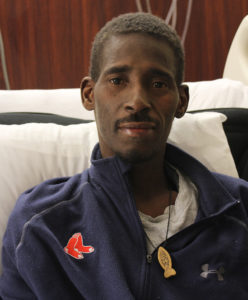Inspiring Stories
Devon’s Story
 Devon Vickers is alive today because of the miracle of a cord blood transplant, and she says the opportunity to travel to Montgomery and Opelika and meet the doctors and nurses who are on the frontlines of cord blood collection was an eye-opener. Vickers, then a junior at the University of Florida, said she was touched by the emotion showed by the doctors and nurses who collected cord blood, but who had never met a person who’d been on the receiving end of a transplant.
Devon Vickers is alive today because of the miracle of a cord blood transplant, and she says the opportunity to travel to Montgomery and Opelika and meet the doctors and nurses who are on the frontlines of cord blood collection was an eye-opener. Vickers, then a junior at the University of Florida, said she was touched by the emotion showed by the doctors and nurses who collected cord blood, but who had never met a person who’d been on the receiving end of a transplant.
“It was cool to see both sides of the cause,” she said. “It really made me remember what my purpose is and why I’m doing this.” She had a special guest accompany her during the visit, her father, Milton Vickers, who was able to offer a parent’s perspective.
“With Devon you’re able to put a face with the process,” said Milton Vickers. “I was able to tell them about how helpless you feel as a parent, the outcome is out of your hands and you have to rely on the grace of others as donors.” Devon said she could see the impact of her father’s remarks, since many of those he was speaking to were also parents or grandparents.
“It hit the emotional aspect of it and it motivates them more to do their jobs,” she said. And for Milton, it was a chance to see Devon in action. He says his daughter has been “paying it forward” since she was a junior in high school.
“I’m always amazed at her ability to get up and speak about the issue impromptu. She speaks from the heart,” he said.
Josh’s Story
 Josh Ibarrientos of Gainesville, FL is a tiny boy with a big smile, who will tell anyone without hesitation that he likes school and loves to swim. The fact that he’s alive to enjoy both is a modern medical miracle that took lots of teamwork.
Josh Ibarrientos of Gainesville, FL is a tiny boy with a big smile, who will tell anyone without hesitation that he likes school and loves to swim. The fact that he’s alive to enjoy both is a modern medical miracle that took lots of teamwork.
For more than six years Josh battled Acute Lymphoid Leukemia, a form of blood cancer. He went through two rounds of chemotherapy treatments and received more blood transfusions than his mother and father, Gea and Arthur Ibarrientos, can even count. Both are natives of the Philippines, where Gea says blood isn’t always readily available.
“I can’t imagine if it wasn’t available,” she said. “We’re really lucky here in America that we have this system and it’s available to everyone.”
When chemotherapy failed to keep the cancer in check, Josh was placed on a waiting list for a bone marrow transplant as the search began for a matching marrow donor. Help came from an unexpected source – a newborn baby. In 2006 he underwent a cord blood transplant, and now at age 12 his cancer has been in remission for four years.
Cord blood comes from a baby’s umbilical cord after birth. Once considered medical waste, cord blood is rich in blood-producing cells and can be used by patients such as Josh to grow new healthy blood-producing marrow. Collecting it is painless for the mother and the baby.
“Every time I know someone who is pregnant, I tell them your OB/GYN will give you some information on cord blood. Joshua is a living example that it really helps, don’t let them waste it, if you can donate it,” she said. “My friends, my relatives know how Josh was saved.”
Gracie’s Story

Sarah White knows there’s another mother out there who gave her a gift that changed her life, and the life of her daughter Gracie. Sarah says Gracie came into the world screaming and seldom stopped. She didn’t sleep, was super sensitive to light, and she wasn’t hitting the growth milestones her doctors expected.
When she was 6 months old she was diagnosed with a rare genetic disorder, Hurler Syndrome, that left her lacking a key enzyme.
“Basically her body was poisoning itself,” said Jim White, Gracie’s father. “We had never heard of Hurler disease until they told us that. It was a huge shock.”
Doctors said the only possibility of a cure was a marrow transplant, and Gracie’s best chance was a transplant using cord blood. The blood left inside the umbilical cord is rich with the same kind of blood-producing cells found in the bone marrow. It can be used by patients needing a marrow transplant for the treatment of diseases such as leukemia, sickle cell anemia, multiple myeloma and Hurler Syndrome.
“I’m not sure I had ever heard of a cord blood transplant at that time. I don’t even think I knew that was an option for what was happening. It was terrifying. On the other hand we knew what the alternative was – she was facing a very difficult and painful short life without the cord blood transplant and death by the age of 10,” Sarah said.
Transplants need to be closely matched based on genetics between the donor and the patient receiving it. One of the advantages of cord blood is that the immature stem cells help bridge the gap when matches aren’t exact, and Gracie and her donor were a close but not exact match.
Jim said the change in Gracie was immediate. The constant screaming and crying stopped. For the first time in her short life, she slept through the night.
“We had someone who could reciprocate love to us,” Jim said.
Today Gracie is a happy and healthy 7-year-old. She’s a big sister to little brother Hank, 2, who doesn’t have the disease. Sarah is changed as well. After caring for Gracie and seeing the many doctors and nurses in action, she switched from a career in real estate to nursing. It’s the happy beginning to a story made possible because that mother, who White knows she’ll never get to meet, made the decision to donate her baby’s umbilical cord blood. Sarah says many friends have donated their baby’s cord blood in honor of Gracie. And from her perspective, the decision is pretty simple. If it’s not donated, it’s thrown away. Sarah says she knows she’d never be able to adequately thank the mom who made that decision for Gracie, so she tries to pay it forward by encouraging others to donate.
“That small choice on her part made the biggest impact on our lives by providing us with our little girl and giving her a chance to have a normal life,” Sarah said. “Thank you, LifeSouth Cord Blood Bank, for all you do to give just one child a chance for a better life.”
Archie’s Story
 Archie lost his battle to cancer while awaiting a lifesaving transplant. Patients are most likely to match someone of their own race/ethnicity. Caucasians have a 93 percent chance of finding a marrow or cord blood match while African-Americans have only a 66 percent chance.
Archie lost his battle to cancer while awaiting a lifesaving transplant. Patients are most likely to match someone of their own race/ethnicity. Caucasians have a 93 percent chance of finding a marrow or cord blood match while African-Americans have only a 66 percent chance.
Archie knew that the only way those odds can improve is more marrow registry volunteers and cord blood donations. He spent the last years of his life educating others and encouraging them to give.
“I’d say to the everyday Joe; you can save a life,” said Archie. “How big would that be? To those who can give, please donate your cord blood. People like me are waiting for you to save our lives.”
